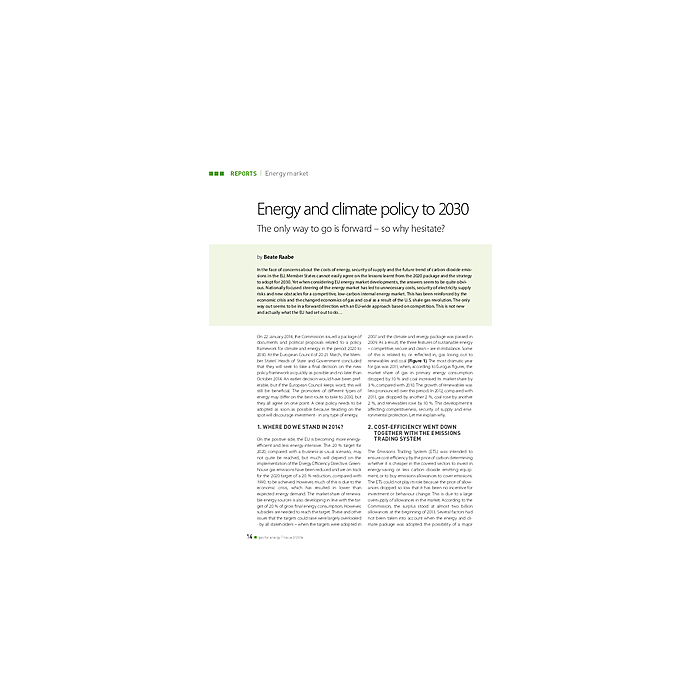Energy and climate policy to 2030
4,90 €
Auf Lager
Artikelnummer
00258_2014_02_02
In the face of concerns about the costs of energy, security of supply and the future trend of carbon dioxide emissions in the EU, Member States cannot easily agree on the lessons learnt from the 2020 package and the strategy to adopt for 2030. Yet when considering EU energy market developments, the answers seem to be quite obvious. Nationally focused steering of the energy market has led to unnecessary costs, security of electricity supply risks and new obstacles for a competitive, low-carbon internal energy market. This has been reinforced by the economic crisis and the changed economics of gas and coal as a result of the U.S. shale gas revolution. The only way out seems to be in a forward direction with an EU-wide approach based on competition. This is not new and actually what the EU had set out to do…
| Autoren | Beate Raabe |
|---|---|
| Erscheinungsdatum | 01.02.2014 |
| Format | |
| Zeitschrift | gas for energy - Issue 02 2014 |
| Verlag | DIV Deutscher Industrieverlag GmbH |
| Sprache | English |
| Seitenzahl | 5 |
| Titel | Energy and climate policy to 2030 |
| Beschreibung | In the face of concerns about the costs of energy, security of supply and the future trend of carbon dioxide emissions in the EU, Member States cannot easily agree on the lessons learnt from the 2020 package and the strategy to adopt for 2030. Yet when considering EU energy market developments, the answers seem to be quite obvious. Nationally focused steering of the energy market has led to unnecessary costs, security of electricity supply risks and new obstacles for a competitive, low-carbon internal energy market. This has been reinforced by the economic crisis and the changed economics of gas and coal as a result of the U.S. shale gas revolution. The only way out seems to be in a forward direction with an EU-wide approach based on competition. This is not new and actually what the EU had set out to do… |
Eigene Bewertung schreiben


